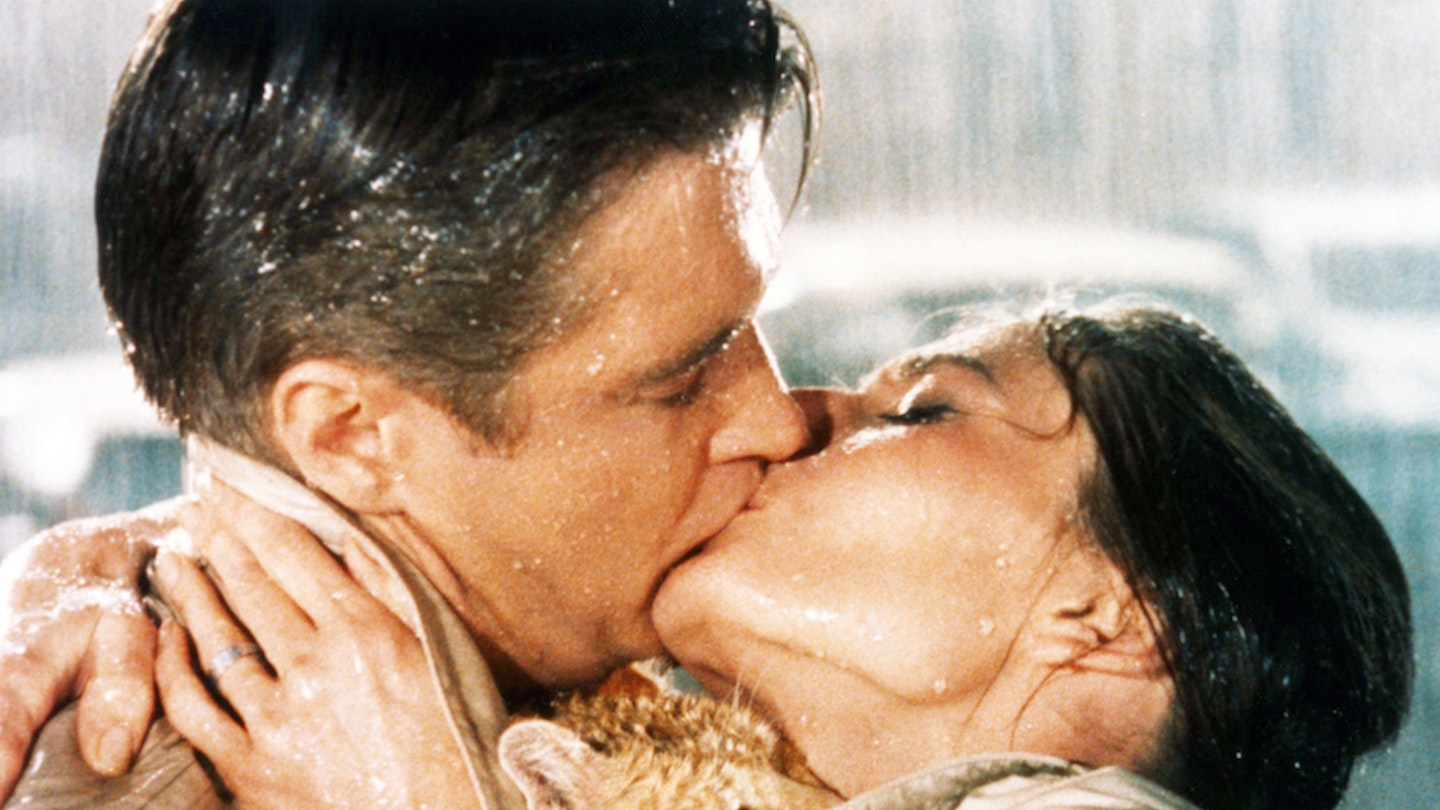Growing up, we all saw our favourite characters, from Holly Golightly to Scarlett O'Hara, Princess Jasmine to Carrie Bradshaw, doing it – that is, shutting their eyes when they smooched.
Chances are though, when we first did it ourselves we weren't thinking about them and what they did. We just did it anyway because it felt natural; instinctive...
But why?
Well, scientists now think they have the answer. And no, it's not what you think. Because it would make sense, wouldn't it, for eye-shutting to come as a result of an inability to focus on something that close-up to your face. But it doesn't...
Apparently, we shut our eyes when we kiss because our brains are unable to process visual data at the same time as the physical sensations coming from our lips and tongues.
That's right, kissing is complicated business!

Interestingly, the research – which was conducted by Polly Dalton and Sandra Murphy, cognitive psychologists at Royal Holloway, University of London, for the Journal of Experimental Psychology: Human Perception and Performance) – didn't entail any kissing at all.
It centred on participants carrying out a visual task whilst also having to respond to small vibrations being applied to their hands. As the tasks got more intense, the psychologists found the 'touch sense' declined.
'If we are focusing strongly on a visual task, this will reduce our awareness of stimuli in other senses,' Polly told The Sunday Times. But sometimes people would rather focus on the physical over the visual, like when kissing or having sex.
'These results could explain why we close our eyes when we want to focus attention on another sense,' she concluded. 'Shutting out the visual input leaves more mental resources to focus on other aspects of our experience.'
So you see, it makes perfect sense...
Next time you find yourselves locking lips with someone, think about it, if you can – though we imagine you probably can't. Because that would be a-whole-nother thing for your 'otherwise engaged' brain to be concentrating on – impossible!
MWAH x
